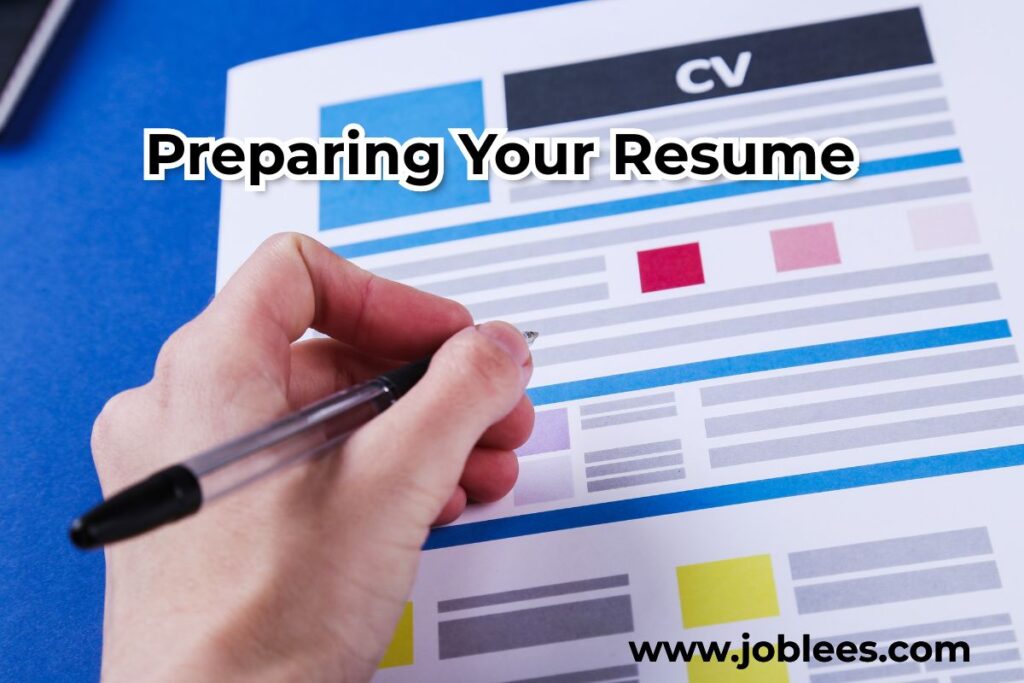Career Opportunities and Job Search: A Comprehensive Guide
You’re at the perfect place whether you’re looking for a job or thinking about changing careers. Everything you need to know about locating employment possibilities and managing the job search process is included in this thorough book. We have you prepared for everything from job ads to interview practise.
Finding Job Opportunities

Finding career possibilities that match your abilities and interests is the first step in a successful job search. To discover job ads, you may utilise a variety of tools.:
- Job search engines: You may look for job opportunities on websites like Indeed, Glassdoor, and LinkedIn by entering a keyword or location. These websites often feature a sizable database of employment opportunities from several businesses.
- Company Websites: Many companies post job openings on their websites. This is a great way to learn about opportunities with specific companies that interest you.
- Professional networks: For people looking for work, networking is a helpful tool. Connect with people in your sector and tell them about your job hunt. They could be able to introduce hiring managers or make suggestions for job vacancies.
- Recruiters: Recruiters specialize in finding job opportunities for job seekers. They have access to job listings that are not publicly advertised and can help you find a job that matches your skills and experience.
Preparing Your Resume

Your resume serves as a prospective employer’s initial impression of you. It is crucial to ensure that it appropriately conveys your abilities and expertise and is clear to read. Here are some pointers for creating an effective résumé.:
- Tailor your resume to each job you apply for: Tailor your resume to highlight the skills and experiences you have that are relevant to the job you are applying for. are more relevant.
- Use keywords: Many companies use applicant tracking systems for resumes. To increase your chances of getting through these systems, use keywords from the job description in your resume.
- Highlight Your Achievements: Don’t just mention your duties; instead, highlight the successes and outcomes you produced in past positions. This can help prospective employers understand your skills better.
- Keep it short: Your resume should be no more than two pages. Be sure to include only the most relevant information and use bullet points to make the information easier to read.
Interview Preparation

Your opportunity to convince a potential employer why you are the ideal applicant for the position is during an interview. Here are some pointers to help you get ready for an interview.:
- Research the company: Before the interview, learn as much as you can about the company, its culture, and the role you’re applying for.
- Prepare answers to common interview questions: There are many common interview questions that employers ask, such as “Tell me about yourself” and “Why do you want to work here?” Preparation can help you feel more confident during the interview.
- Practice: Practice answering interview questions and practice your body language. This will help you feel more confident and comfortable during the interview.
- Dress appropriately: Make sure you dress professionally for the interview. First impressions are important, and dressing appropriately shows that you are serious about the occasion.
Salary Information

Determining whether or not to accept a job offer can be influenced by knowing what to expect in terms of pay. Here are some sites for learning about salaries.:
- Salary Calculator: Websites like Glassdoor and PayScale provide salary calculators that allow you to estimate salaries based on factors such as job title, location and experience.
- Industry Reports: Industry associations and government agencies often issue reports that include information on average salaries for various jobs and industries.
- Networking: Talk to people in your network who work in similar roles or industries. They may be able to provide valuable insight into typical salaries for the type of work you are interested in.
When assessing employment offers, it’s critical to keep in mind that income isn’t the only consideration. The whole value of your benefits package, including things like paid time off, retirement plans, and health insurance, can also be significantly influenced by these additional perks.
Career Development

To advance in your job, it is essential to develop your abilities and keep learning new things. Listed below are some tools that aid with career development:
- Professional Associations: Joining a professional association in your field can provide you with opportunities to network, attend events, and access training and development resources.
- Online Courses: Platforms like Coursera and Udemy offer online courses in various subjects that can help you develop new skills.
- On-the-Job Training: Many employers offer training and development programs for their employees. Talk to your manager about opportunities for advancement at your company.
- Mentoring: Find a mentor who has experience in your field and can provide guidance and advice as you navigate your career.
Conclusion
Last but not least, while the job search process might be intimidating, it can also be an exciting chance for growth and development with the correct tools and preparation. To identify employment chances, use job search engines, networking, and business tools. To leave a good impression, polish your CV and prepare for interviews. When assessing employment offers, take into account the total remuneration package, including the salary and perks. And to progress your career, keep improving your talents and growing your network.. Good luck in your job search!



